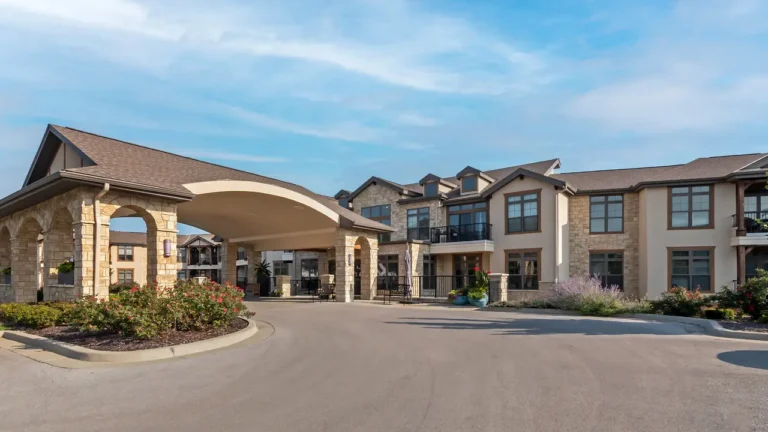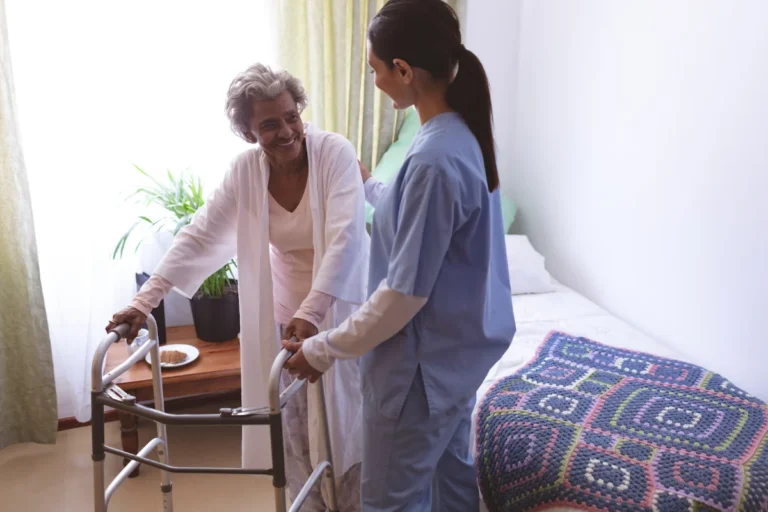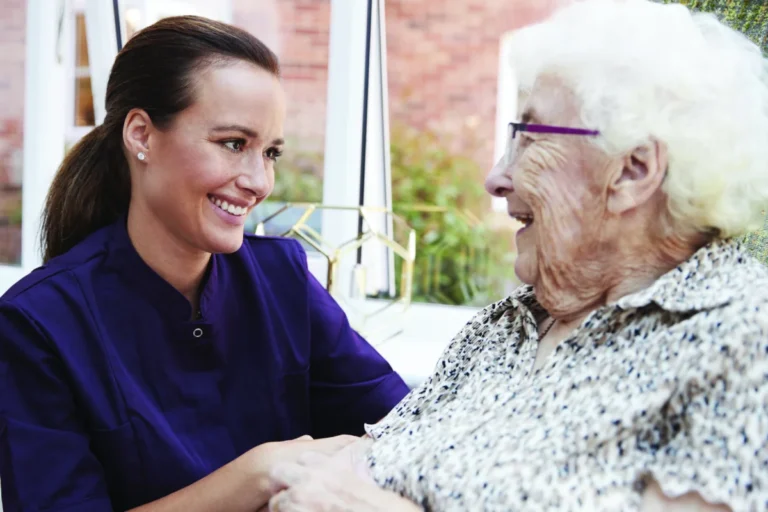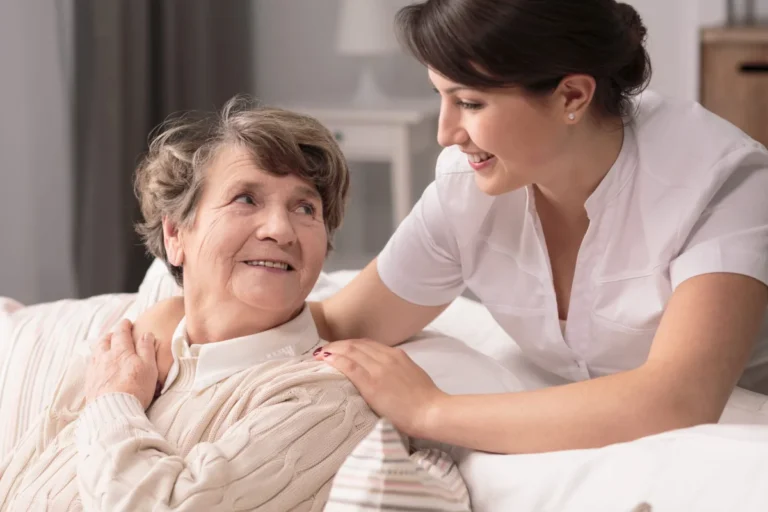During the holiday season, those who live far from their senior family members may be spending time with their loved ones for the first time in a while. This visit might mark the initial chance in several months to directly assess the well-being of their aging loved ones.
We have put together a Senior Care Checklist for family members to assess the level of seniors’ health and well-being during visits, with helpful tips on what to look for and how to have conversations with seniors to support them. This list includes activities of daily living (ADLs), which are used to determine which level of care is appropriate for an aging adult.
Factors to Evaluate a Senior’s
Well-Being
A senior’s health cannot be fully evaluated by one sign. However, their daily movements and activities can provide clues to understanding their life and needs. Use your best judgment when looking for these signals of seniors’ safety and health:
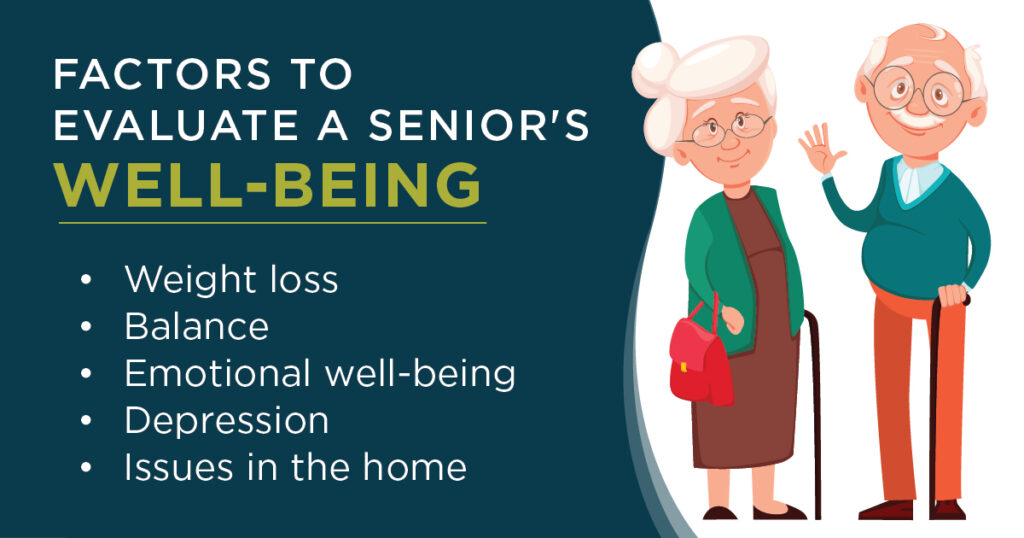
- Weight loss: One of the most noticeable indications of poor health in a senior is weight loss. This decline can have various underlying reasons, including conditions like cancer, dementia, heart failure or depression. However, weight loss can also be tied to everyday challenges, such as lacking the energy to prepare meals for oneself or a loved one, or aging adults may struggle to read small print on food labels. Oftentimes, a senior may need assistance with activities of daily living, such as hygiene, bathing or dressing.
If you observe noticeable weight loss in someone you care about, it’s time to express your concern and arrange for a medical assessment with a doctor to address the issue. - Balance: During the visit, observe the senior’s movements closely, with a specific focus on their walking patterns. Hesitation to walk or evident discomfort during movement might indicate issues with their joints or muscles or potentially more severe health conditions.
If your loved one appears unsteady on their feet, there is a greater risk of falling, which is a critical concern that can lead to severe injuries. - Emotional well-being: Watch out for changes in the emotional shifts in the well-being of your loved ones. Even if you speak with them daily, it can be challenging to fully assess their emotional state over the phone. Look for signs of mental well-being changes, such as their withdrawal from social activities, changing sleep patterns, a waning interest in hobbies and neglect of daily living activities, such as basic home maintenance or personal hygiene.
- Depression: Depression in seniors could mean they have dementia or other physical problems, like dehydration. This is sometimes ignored in older people, especially in winter. If you notice any strange behavior in your loved one, it’s important to quickly get them checked by a doctor. These symptoms can also be caused by a urinary tract infection, which is common in older people and can be easily treated with antibiotics.
- Issues in the home: A messy home could indicate a problem if you notice clutter and unopened mail in a senior’s home. Additionally, remain attentive to subtler signs of concern. If you see burned pots and pans, it might mean the senior has forgotten to turn off the stove.
An overflowing laundry hamper might suggest they lack the physical strength or motivation to do their laundry. It’s important to check prescription bottles for expiration dates and keep a record of the medications your family member takes. Store this information in your personal files and in your loved one’s wallet for emergencies.
Create a Senior Health Plan
There may be other areas of concern specific to your family member. Should this year’s holiday visit open your eyes to current and potential problems or negative changes in your parent’s physical or emotional state, then it’s time to put a plan of action in place.
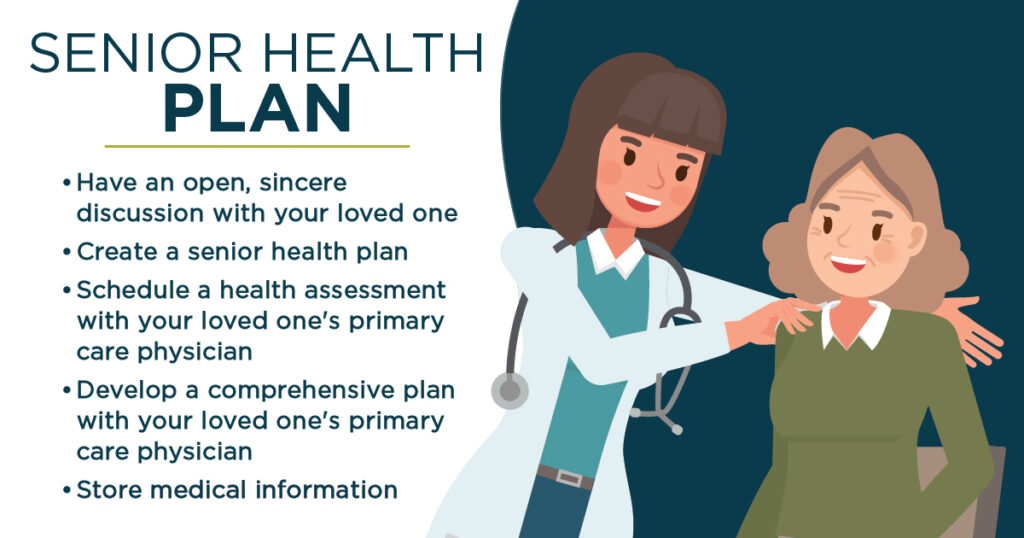
- Begin an open and sincere dialogue with your loved one. Discuss their present circumstances, concerns and aspirations for improvement. Suggest the idea of scheduling a health assessment with their primary care physician. During this conversation, it is important to approach the topic with empathy and understanding. Let your loved one know that you are there to support them and that their well-being is your top priority. Encourage them to express any worries or fears they may have about their health.
- Once you have had an open discussion, it is time to create a senior health plan. This plan should address their specific needs and concerns. Consider involving other family members or close friends who can provide additional support and input.
- Start by scheduling a health assessment with their primary care physician. This will help identify any underlying health issues and provide a baseline for future monitoring. Encourage your loved one to be honest and thorough during the assessment, as this will ensure accurate diagnosis and appropriate treatment.
- Based on the health assessment, work with the physician to develop a comprehensive care plan. This plan should include regular checkups, medication management and any necessary lifestyle changes. It is important to involve your loved one in the decision-making process, as this will empower them and make them feel more in control of their own health.
In addition to medical care, consider other aspects of their well-being. This may include arranging transportation for appointments, ensuring their living environment is safe and accessible and providing emotional support. Remember to regularly review and update the senior health plan as needed, as circumstances and needs may change over time. - Lastly, store this information in your personal files and in your loved one’s wallet for emergencies. This will ensure that important medical information is readily available in case of an unexpected health crisis. By taking these proactive steps, you can help your loved one maintain their health and well-being as they age. Discussing this topic may initially be challenging. However, expressing your concern for your loved one’s well-being can create a collaborative effort toward improvement.
It may be that the senior needs minimal help, such as a home health aide visiting throughout the week to assist with activities of daily living like hygiene, dressing or household cleaning. As you start to understand your loved one’s specific situation in depth, you may realize that they require a higher level of care than what is currently available to them.
- Identify resources: While you may want to keep a lighthearted atmosphere during the holiday season, it’s important to take the opportunity to gather all the essential information to proactively identify issues and support your loved one.
Many services are available to seniors locally and nationally. Visit the local Council on Aging or contact local community services resources. Take a copy of the local telephone directory home with you so you and your senior can create a comprehensive list of local resources, should they need them.
This list should include friends, neighbors, clergy members, local professionals and anyone else with whom your senior loved one regularly interacts. If you haven’t already, take the time to meet with these friends and neighbors, ensuring that you have their addresses, telephone numbers and email addresses. It’s also essential to provide them with your contact information for effective communication. - Prepare a to-do list: It’s time to start creating a to-do list that can be spread out over several upcoming visits. The medical information section should include your loved one’s health conditions, medication details and the names and contact information of their health care providers. In the financial category, compile information about property ownership, debts, income, expenses, and banking and credit card details.
Additionally, make sure you have access to all vital documents for your senior loved one, which may include their will, power of attorney, birth certificate, Social Security number, insurance policies, home deed and driver’s license.
Empower your loved ones and grant them the autonomy to control their own lives to the extent that’s reasonable. By establishing efficient systems, you can help your loved one maintain their independence and safety in their own home, offering you peace of mind not only during your holiday stay, but also during your future visits.
Support at Tutera
After assessing your loved one’s well-being, you may find that it is time to provide them with extra support. Every senior’s situation is different, so your plan of action may be simple or extensive at this time.
You may find during a senior well-being check that your loved one is ready for a higher level of care or more assistance with activities of daily living. If you determine that it is time to move your loved one into a senior living community, Tutera communities offer a variety of lifestyle options for every senior:
- Independent living: Perfect for the active senior who is mobile and able to care for themselves with minimal support.
- Assisted living: For those who need extra help with activities of daily living, such as medication management, bathing and dressing.
- Memory care: This option serves seniors with dementia or other types of cognitive impairment. Studies have shown that identifying degenerative memory-related illnesses early can help improve quality of life and keep the mind and memory more intact for a longer period of time.
- Short-term care and rehabilitation services: These programs assist seniors with short-term stays and rehabilitation activities and care after an event such as a hospital stay.
At Tutera, we pride ourselves on employing the very best health care professionals and compassionate, specially trained caregivers dedicated to giving your senior loved one the very best support. Every member of the Tutera team completes an extensive training program to ensure that they can offer the very best care. Curated programs, such as our specialty memory care program, Thrive in the Courtyard, help stimulate both mental and physical wellness with those in the community who need extra care and support.
Our communities feature a variety of services, such as housekeeping, laundry, transportation, and daily activities and programming. Our team prioritizes safety and security, giving family members incredible peace of mind, even from far away.
We are here to help you navigate this journey with your loved one. We know that the holidays can be an especially stressful time for family members who live away from loved ones, and Tutera is here to provide options and resources to make the evaluations and decisions a little easier. Caring for an aging loved one can easily be a full-time job, and oftentimes it takes a dedicated team of caregivers and resources to keep your loved one healthy and comfortable.
Contact us today for a free assessment and consultation to identify your loved one’s needs and level of care. Looking for a list of our communities? Tutera communities stretch nationwide, and you can find your closest community here.



